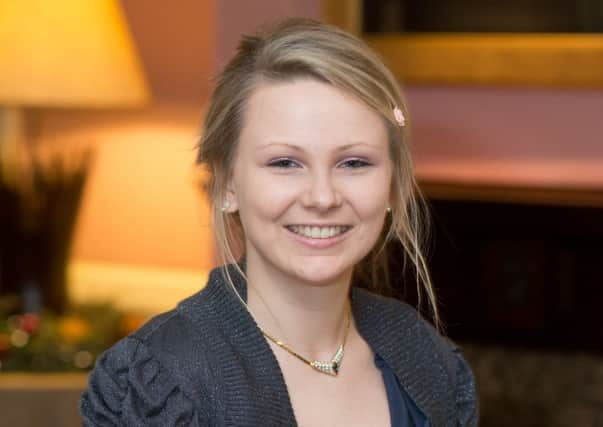Catriona Morrice: Scotland a world leader in Type 1 diabetes research


Many people don’t know that Type 1 diabetes is an autoimmune condition. In summary, the pancreas stops producing insulin – a hormone that allows the body to get energy from food. Its onset can come on at any age and has absolutely nothing to do with diet or lifestyle.
With more than 29,000 Scots living with the condition and with incidences increasing at a rate of about 4 per cent each year, particularly in children under five, this means that Scotland has the third highest incidence of Type 1 diabetes in the world. That’s shocking.
Advertisement
Hide AdAdvertisement
Hide AdWith such an acute challenge, we also have a tremendous opportunity to improve the lives of people in Scotland with the condition and make the nation a world leader in Type 1 research and development.
Right on our doorsteps, we have a wealth of experience in the life science and biotech sectors.
There are 19 universities and higher education institutions and there are already good examples of successful collaborations between industry, academia, government and clinicians.
I – like many others – believe a cure will be found, but until then, we need to keep investing in research. It’s the only way we’re going to beat this condition.
Type 1 diabetes is close to home for me as my fiancé was diagnosed 13 years ago when he was 18.
It’s never easy for anyone to have a daily routine consisting of endless finger prick tests to measure blood glucose levels to prevent dangerous hypoglycaemia and hyperglycaemia, carbohydrate counting before each meal and multiple insulin injections just to stay alive.
Although he was older when he received his diagnosis, it’s particularly difficult when it’s a young child receiving the news.
On the one hand, it’s a blessing as they don’t really understand what the doctor is telling them, and it just becomes part of their everyday life, but it’s seeing the look on their parents’ faces.
Advertisement
Hide AdAdvertisement
Hide AdShocked, upset, angry, why them and not me, are just some of the words parents use.
We need to put an end to this happening to families, not in only in Scotland, but across the world.JDRF wants to drive the development of new research and ensure Scotland continues to be recognised worldwide as a leader in the field and a vital player in our attempts to find a cure.
Recently, we have supported the development and testing of a world-leading, UK-based artificial pancreas project and we hope it will be approved and commercially available in Europe very soon.
An artificial pancreas consists of a continuous glucose monitor, an insulin pump and an algorithm, working together to automatically measure and regulate background blood glucose levels.
It significantly reduces the worry and guesswork from managing Type 1 diabetes and has the potential to be transformational for those with the condition. For instance, there would not be the anxiety, especially overnight, regarding ‘hypos’ – when blood glucose levels drop dangerously low.
Type 1 is a condition that affects the whole family and I can’t wait for the day when everyone living with it can throw away their insulin pumps/pens, forget about carb counting and never look back.
Catriona Morrice, development manager (Scotland), JDRF.